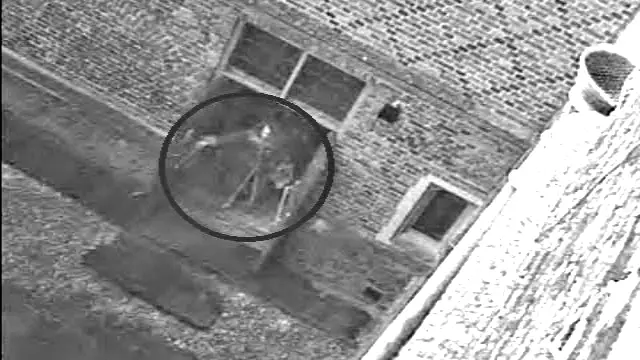‘80s B-movie cinema remains something of an unexamined critical trove, and for fairly good reasons. As VHS replaced the Drive-In as the core constituent of trash cinema, low-budget and independent genre filmmakers became rapidly less imaginative, and the era is generally remembered as an ocean of lousy slasher films, teen raunch comedies, and terrible sci-fi monster movies imitating Alien. Even at Roger Corman’s New World, the inventiveness of their ‘70s output gave way to a very forgettable decade, and names from the previous epoch’s exploitation, like John Carpenter, Joe Dante, John Sayles, Lewis Teague, John Landis, and George Romero, were all well on the way to joining the mainstream. But ‘80s trash cinema did occasionally cough up some real outliers, with Sam Raimi and Stuart Gordon as two of the few notable successors to emerge in the era. Mark Goldblatt, the director of Dead Heat, a New World production, doesn’t have the same kind of recognition factor, but his invisible touch is very familiar, lending the same kinetic energy as he offers here as an editor on everything from his earliest work, including Piranha (1976) and The Terminator (1984) to later, huge-scale projects like Starship Troopers (1997) and the second two X-Men movies. His directorial output was limited to two films, this and the infamous Dolph Lungren version of The Punisher (1989) His feature debut is nonetheless one of the more curiously memorable B-movie efforts of the period. I had seen it once, as a kid, and when I found a copy in a $2 bargain bin recently, I felt a surge of pleasant recognition. Revisiting Dead Heat, I was surprised at just how much it feels like a rough prototype for the style of kinetic gross-out comedy-action piece which Peter Jackson was to become initially infamous for, and a lower-budgeted template for the similar LA-tangy atmosphere and self-satirising, blissful excessiveness of Stephen Hopkins’ Predator 2 (1990), which Goldblatt also edited.
Utilising the what-the-hell? teaming of Treat Williams and Joe Piscopo, Goldblatt casts them as Detectives Roger Mortis and Doug Bigelow, who have to bring down two mysteriously bullet-proof jewellery thieves with unconventional tactics during a shoot-out. Mortis’ coroner ex-girlfriend Rebecca Smythers (Clare Kirkconnell) assures them that she had performed autopsies on the two men several hours before the robbery. Someone is reanimating the dead, and the detectives follow a trail to a mysterious clinic where Bigelow is assaulted by a grotesque hulk and Mortis, shoved into a decompression chamber for putting down lab animals, dies. But before rigour mortis sets in for Roger Mortis, Rebecca has recognised the purpose of a mysterious machine in the clinic, capable of revivifying dead tissue for several hours. She and Doug bring Mortis back to life to solve the case before he will inevitably die again. Mortis takes his death largely in his stride, although beset by moments of existential despair, and he and Doug battle zombie hitmen whilst trying to extract information from the clinic’s PR officer, Randi (Lindsay Frost), daughter of the clinic’s owner, the recently deceased plutocrat Arthur P. Loudermilk (Vincent Price). Rebecca’s morgue boss Dr. McNab (The Night Stalker himself, Darren McGavin, having a whale of a time) proves to be in cahoots with Loudermilk, as they scheme to enrich themselves by refining the revivifying machine so that it can sustain select people forever.
Tasteless hardly begins to describe this film, which is distinguished by a singular ruthlessness balanced by a purely tongue-in-cheek tone: every single major character dies, some in an appalling fashion, and yet a tone of black-humoured mirth is constantly sustained, to the point where Williams and Kirkconnell can’t keep their faces straight during a dialogue exchange. The script, by Shane Black’s brother Terry, pokes fun at the clichés of the buddy cop movie, starting with the inseparable partnership of the diverse heroes. Mortis is a straight-shooting, if emotionally clumsy dude, whilst Piscopo’s Bigelow takes the familiar figure of the dirty-minded second banana armed with an amusing puerile streak, to rare limits. Bigelow gets desperate for lunch as his partner rots away beside him, and his final wish is to be reincarnated as the seat of a lady’s bicycle. Mortis quickly learns to enjoy the way being dead has liberated him from the familiar limits of mortality, shouting “This is going to be great!” as he lets an ambulance he’s been locked in roll down a steep hill into traffic, a crash that would be horrendously fatal except that he emerges utterly blasé about his partly roasted physiognomy. In the film’s most giddily inventive sequence, Mortis and Bigelow track clues to a Chinese restaurant run by
It goes without saying that Dead Heat is hardly a deep enquiry into the nature of mortality, nor is it as fiendishly, admirably compulsive as

















